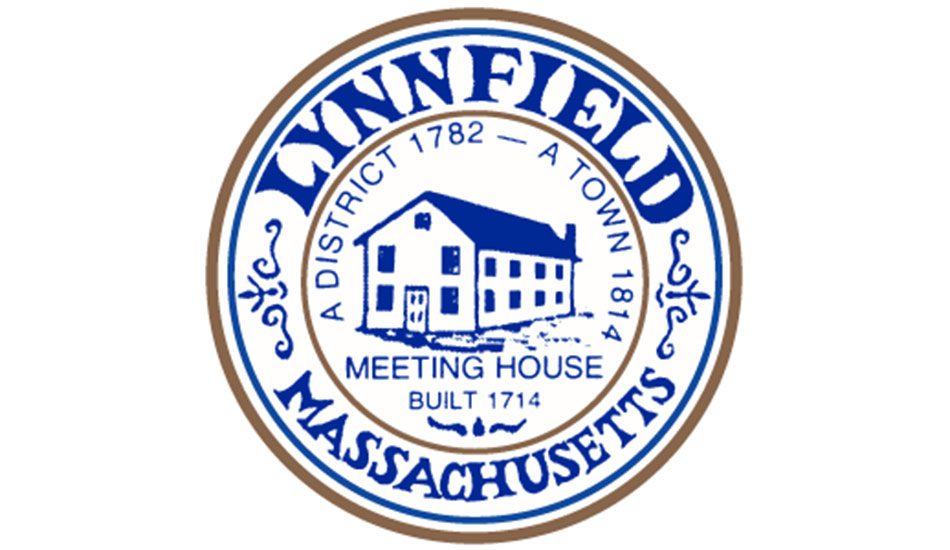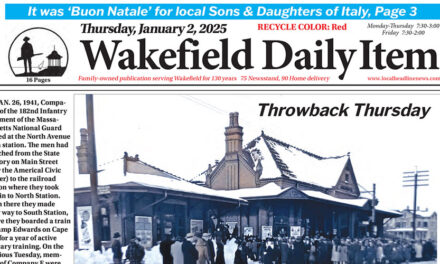By DAN TOMASELLO
LYNNFIELD — The Planning Board unanimously voted on Oct. 23 to recommend a proposed zoning change that seeks to comply with the MBTA Communities law for Fall Town Meeting.
The MBTA Zoning Committee recently selected three overlay zoning subdistricts that will be brought to Fall Town Meeting on Wednesday, Nov. 13, beginning at 7 p.m. in the Lynnfield Middle School auditorium.
Planning Board Chair Page Wilkins, who also chairs the MBTA Zoning Committee, recalled that former Gov. Charlie Baker signed an economic development bill into law in February 2021 that amended the Zoning Act by requiring 177 MBTA Communities to have at least one zoning district of reasonable size in which multifamily housing is permitted as of right.
Wilkins said the MBTA Communities law, also known as Section 3A, classifies Lynnfield as an “MBTA adjacent community” because the town borders municipalities with MBTA stations such as Lynn, Reading and Wakefield.
“The law does not require that multifamily units have to be built,” said Wilkins. “This is only a zoning change that could allow multifamily housing in certain locations in town. The statute requires Lynnfield to rezone a total of 40 acres that would have a unit capacity of 607 units.”
Wilkins said three of the proposed locations that would have overlay districts placed on them are MarketStreet Apartments, Michael’s Landing and Lynnfield Commons because those apartment complexes already exist.
“From talking with our consultant, we were able to rezone areas that have already been built in town,” said Wilkins.
Wilkins said there are 200 units at Lynnfield Commons, 180 units at MarketStreet Apartments and 68 units at Michael’s Landing. She said four other parcels located on an existing Herb Chambers dealership property and one parcel on a Kelly Automotive dealership property on Route 1 North are included as part of the Lynnfield Commons overlay subdistrict.
“By taking advantage of these three already built apartment buildings, we are left with a possible 149 new units,” said Wilkins. “Nothing has to be built. It is just a zoning change.”
Planning Board Vice Chair Kate Flaws recalled that some residents have expressed concerns about MarketStreet Apartments being incorporated into plan.
“The only piece of MarketStreet that is being rezoned is the exact location of the multifamily apartment buildings,” said Flaws. “No other portion of MarketStreet is being rezoned. The only change that could possibly happen is if someone tears down the existing apartment buildings and puts up the same exact thing. There is no change at MarketStreet.”
Flaws also said the proposed zoning change would restrict any future new multifamily housing developments constructed on Route 1 North to be two-and-a-half stories.
“If someday in the future Kelly or Herb Chambers did want to sell for construction, there would not be a huge four-story building there,” said Flaws. “Those lots would only have a maximum of two-and-a-half stories. There wouldn’t be hundreds of units there. The limit would be 149 in that location. It does not include the old Fat Cactus restaurant that is currently being used for parking. It is where those huge dealership buildings are.”
In response to a question from Planning Board member Amy MacNulty, Planning and Conservation Director Emilie Cademartori said an overlay zoning district is located on top of areas with already existing zoning.
Wilkins said the town is currently classified as being in “interim compliance” with the MBTA Communities law. She said the town is facing a Dec. 31 deadline to adopt a multifamily zoning district in order to comply with Section 3A.
“If we are out of compliance, we won’t be eligible for many grants that we take advantage of,” said Wilkins. “There is a list of grants in the statute that we will no longer qualify for and there are other grants that would be at-risk. We have relied on $3.2 million in grants, many of which are street, sidewalk and infrastructure type grants.”
Wilkins said losing access to state grants would have a “significant impact on the town.”
“The other concern is if we don’t comply, we will get sued by the attorney general,” said Wilkins. “Milton has gotten sued. The concern there is not only the expense and having to deal with that, but if we don’t win, the concern our committee had was that the state would tell us where this zoning district had to be. This is us doing something that would have a very low impact on the town.”
Reaction
Wakefield resident Robert McLaughlin said his community’s Spring Town Meeting rejected three different compliance plans with the MBTA Communities law last May. He said Wakefield’s Fall Town Meeting will be voting on a revised plan on Saturday, Nov. 16. He asked if the Planning Board is concerned that the law would result in all four schools becoming overcrowded.
“We took a look at all of our existing multifamily apartment units in town to see what is the impact on the schools if 149 units were eventually built,” said Flaws. “We currently have 96 schoolchildren in the entire town who live in apartments. The estimate is about 30 additional students if the 149 additional units were built. Those kids would be spread out across all of our schools. It would have a minimal impact.”
Debston Lane resident Wally McKenzie recalled that the town approved the $18 million elementary schools’ expansion project four years ago to address increasing enrollment.
McKenzie said Select Board Chair/MBTA Zoning Committee member Dick Dalton originally supported not including MarketStreet Apartments in the MBTA zoning plan before changing his mind.
“I am still concerned about including MarketStreet because it lights a fire under people,” said McKenzie. “This just increases the risk of it not passing. I respectfully ask that you go to the original choice Select Board Chair Dalton had made.”
Wilkins said the town would have to zone for over 300 units if MarketStreet Apartments was not included in the MBTA zoning plan.
“The possible impact on the town is significantly lower,” said Wilkins. “We are not talking about building anything new or changing anything new at MarketStreet. We shouldn’t be afraid to take advantage of that to benefit the town. That is the least impactful for the town.”
In response to a question from McKenzie, Cademartori said the MBTA Communities law originally included three grant programs that communities would lose access to if they don’t comply with Section 3A.
“The compliance guidelines have since added 12 additional programs,” said Cademartori. “Those additional programs are where the town has generally received funds. Most state grant contracts that we have has a provision that says the town must be in compliance with all state law. That is a standard provision. We are now realizing that could jeopardize any state grant regardless of the statute. That is a pretty significant broadening of the funds that are at-risk. Section 3A is a state law and if we are going to have a contract with the state to receive a grant, the town must in be in compliance with all state law. Period. It doesn’t matter what the grant funding is. We only recently became aware of that risk. That is pretty frightening because it used to be three grant programs, but it might be all grant programs.”
Former Planning Board member Alan Dresios commended the plan. He congratulated the Planning Board and the MBTA Zoning Committee for “all the work they have done.”
Planning Board member Ed Champy expressed his support for the MBTA zoning plan.
“I thought the areas that were selected were smart and strategic,” said Champy. “No one is knocking down an apartment building to build another apartment building. I commend the efforts. I like it.”
Planning Board member Brian Charville said the town has to comply with the MBTA Communities law whether residents want to or not.
“Looking at it legally or practically, there is not really a choice here,” said Charville. “We have got to do it. Nobody denies there is an affordable housing problem in the state. There is a shortage of housing for working people, there is a shortage of housing for families and this is what the General Court came up with to address it. It seems like somebody goofed up that towns like ours are able to get away with using existing multifamily developments to check the box and get the requirement. That seems like a big loophole. Let’s jump at the loophole and take advantage of it.”
MacNulty expressed her support for the plan and thanked the MBTA Zoning Committee for developing it.
“We need to help residents understand how important this is,” said MacNulty.





